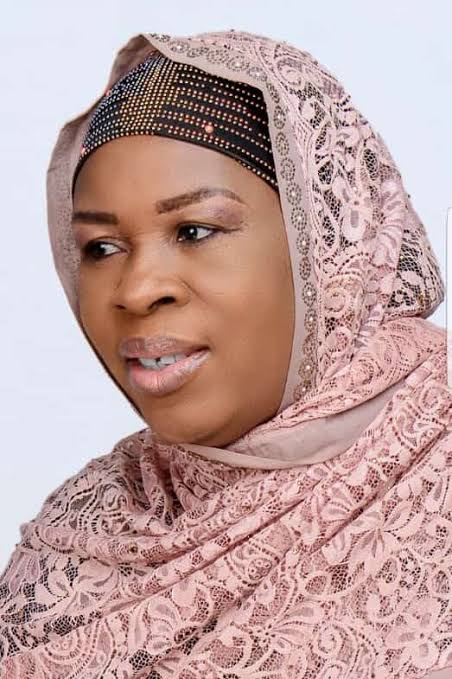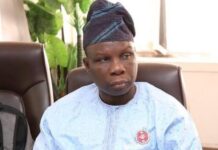Tinubu’s self-inflicted wounds and the blame game, by Zainab Suleiman Okino
Notwithstanding his marginal victory, the negative impact of his ill-advised policy initiatives and lopsided appointments, the events of the last week have further detracted from President Bola Tinubu’s much-famed political capital and administrative wizardry.
As damaging as the arraignment of teenagers from the North detained for the last three months over the EndBadGovernance protest is to the Tinubu government, its rejection of the National Economic Council (NEC)’s advice to halt a proposed tax reform bill over pervasive hardship in the land and “pave the way for comprehensive consultation and consensus building among key stakeholders” is shocking and frighteningly novel. The president insisted the proposal should go through the legislative process at the National Assembly instead.
Although NEC’s role is advisory, Tinubu’s open countermand of their recommendation and his recourse to the National Assembly speak volumes. NEC is chaired by VPs, in this case VP Kashim Shettima. For President Tinubu to openly disagree with his VP, ignore their decision, and subject it to the National Assembly, perceived as being at his beck and call and as a rubber stamp of the executive, is to pervert the constitutional role of the VP. Tinubu’s rejection of NEC’s recommendation suggests fractures and conflicts at the top echelon and indicates that his decision (good or bad) is superior to others. I cannot remember a time in recent years when a president has openly thrown the NEC under the bus as Tinubu did recently. It is symptomatic of a divided house capable of fostering chaos at the top level of the bureaucratic structure. Not that it matters to ordinary people anyway.
READ ALSO: Fuel subsidy: Enough of this pretence, by Zainab Suleiman Okino
Although the arraignment of vulnerable, hungry, and malnourished minors has gone viral and is being condemned generally, except by those reading ethnic and political meaning into it, it is astonishing that government officials are trying hard to justify what is obviously an embarrassing moment for that same government and their principal. To keep 76 people, among them 32 children, in detention for three months for daring to speak out, protest hunger, and bad governance is an indictment of that government and the state governors where the children were ‘harvested’ from. To justify it with treason charges is laughable, and to ask for 10-million-naira bail for each of the children is the height of insensitivity. If the children or their parents had 10 million Naira, would they risk it all on the streets to join a protest they could hardly comprehend, instead of being in school?
These ugly images (and video) of famished children, out of which four slumped and some reeled from exhaustion, scavenging for anything edible in the courtroom will remain an albatross for the government of Tinubu forever, just as the incarceration and exile of pro-democracy activists who confronted the military regime of Generals Ibrahim Babangida and Sani Abacha over the annulment of June 12 election is etched in our memory and history books forever.
This case has also detracted from the goodwill Tinubu enjoyed, especially in the North, as much as its long-term impact of demarketing the Nigerian brand. For the government of a once human rights activist like President Tinubu to abridge the rights of minors is to take activism to a hypocritical and ludicrous extent and make nonsense of the criminal justice system. Among all the criminals that roam our streets and country, it is a shame that the Nigerian police could only arrest and present vulnerable children as evidence of proactive police investigation. The president needs to call his appointees to order because even out of office, this legacy of punishing the weak to serve the interest of the powerful will remain indelible.
Just before the court appearance of the minors was a case of hungry people scooping what didn’t even look like spaghetti (if not for the efforts and presence of the commentator) from an accident truck that emptied its contents on sand, such that neither was easily identifiable. As the people—young and old, men and women—struggled to pack the sand-spaghetti, they made utterances like ‘there is hunger’, ‘we thank God for this’, ‘God don put food on our table today’. It was a pitiable sight not fit even for animals in this land of plenty.
This groundswell of outcry and anger over hunger in the land should be pacified by authorities and not the other way around. Not even menial jobs and petty trading have escaped government’s hammer, either through overtaxing, transport fares, or total blackout as happened penultimate week. Frequent grid collapse has been our lot over the years. However, in less than two years of this government, the grid has collapsed at least 10 times. It threw the nation into darkness for hours or a few days, but the darkness that enveloped the North was unprecedented. For over 10 days, more than half of the country was in darkness and in the process lost billions of Naira. And questions were being asked: whether the North is part of Tinubu’s radar or if anybody cared at all.
So, when the Tinubu government faces stiff opposition, criticisms, or gets dragged on social media, there are genuine reasons for it. There is resentment towards the government engendered by their ‘I don’t care attitude’ or their lack of empathy. For Nigerians, government just feels like an instrument of oppression and means of marginalization of those out of the power loop. These children’s agony certainly felt that way.
Therefore, criticism should not be seen as the pastime of opposition to undermine or sabotage the policies of the governing party under Tinubu. The presidency and Tinubu’s coterie of appointees who are beholden only to the president (and not the people of Nigeria) are by omission or commission undoing the Tinubu presidency. Meanwhile, since the buck stops at his table, President Tinubu is advised to review some of his harsh economic policies to ease the plight of Nigerians and reduce people’s animosity (if any) towards his government. The problem is neither the EndBadGovernance protest nor the protesters. It’s all about the policies that engendered it.
Zainab Suleiman Okino is a syndicated columnist and can be reached through: zainabokino@gmail.com
Disclaimer
The opinions and views expressed in this article belong solely to the original author and other contributors. They do not necessarily reflect the official policy or opinions of Neptune Prime.
Follow the Neptune Prime channel on WhatsApp:
Do you have breaking news, interview request, opinion, suggestion, or want your event covered? Email us at neptuneprime2233@gmail.com





